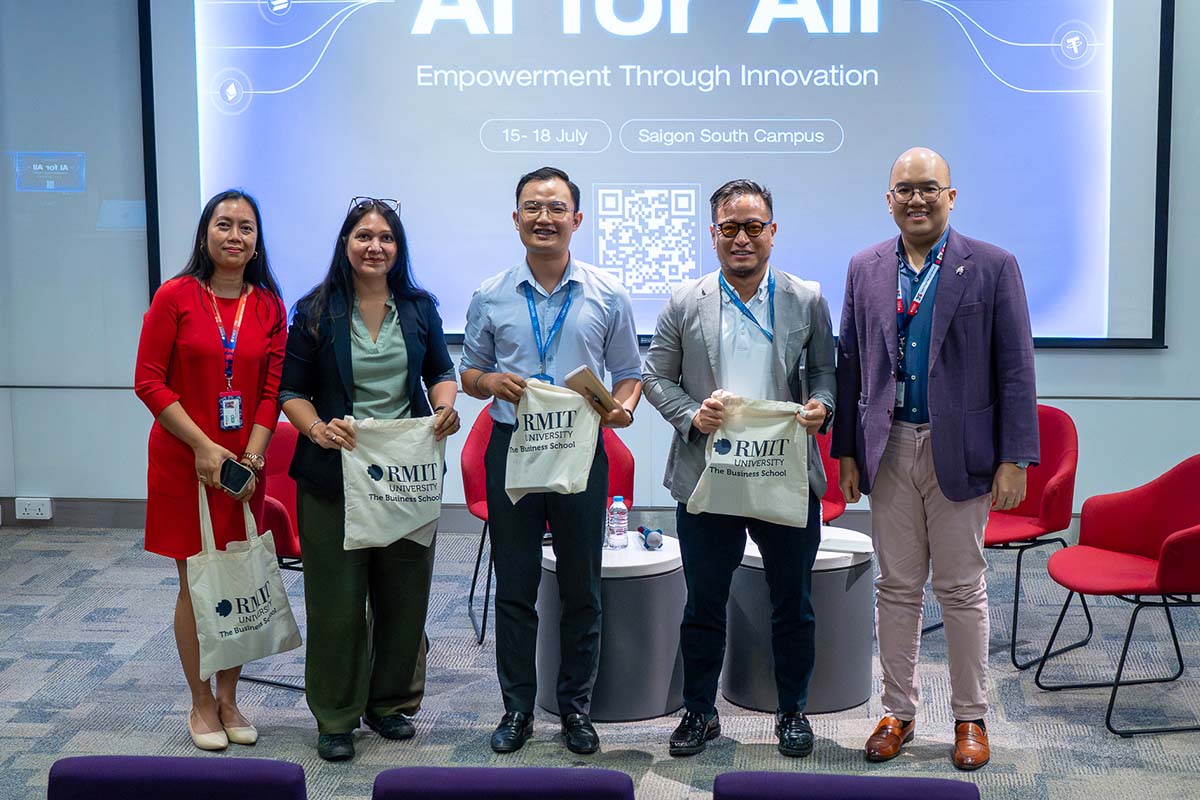
When a child enters university, many parents and students often carry an expectation: to earn a degree and land a stable job after graduation. I used to think that way too.
But more than a decade after graduating from RMIT, looking back on my career and my journey of living a meaningful life, I've realised that the degree is only the tip of the iceberg, the real legacy goes much deeper.
As a career coach, I meet many young people with decent degrees, strong skills and impressive grades - yet they feel lost when standing at life's crossroads. That's when I began to see that the most valuable thing university gives you isn't a title; it's how you see the world, how you see yourself and how you make decisions for your own life. For me - an RMIT alumnus - that has been the foundation for how I live and define my career today.
At RMIT, I wasn't forced into a fixed academic path. I could choose my subjects, build my own schedule and work on research topics that matched my passions.
It might sound easy, but in reality, this meant I had to take full responsibility for every decision. If I registered for the wrong course, I had to wait for the next semester. If I managed my time poorly, I missed deadlines. If I chose the wrong research topic, I couldn't just "fix it" at the last minute. That taught me an important habit: think before you decide and take full ownership - no excuses, no waiting for someone to save you. Later on, whether freelancing, launching a start-up, or switching careers, that mindset helped me stay grounded through hard decisions.
I still remember feeling overwhelmed the first time I was asked to write a critical response - with no model answer. The lecturer didn’t ask what I knew, but what I understood. There was no copy-pasting, no rote learning. RMIT didn't teach me to cram for exams - it taught me to apply. That meant reading critically, asking questions, solving problems and diving deep into knowledge myself.
That "learning to understand" mindset has stayed with me ever since - even now, as a career coach, a profession that barely had a name ten years ago in Vietnam.
I have to keep learning every day to stay current with the job market, career trends and 21st-century skills. And I'm grateful that my university taught me how to learn, not just what to learn.
 Le Tuan Anh as a guest speaker in one event organised by The Business School, RMIT University Vietnam
Le Tuan Anh as a guest speaker in one event organised by The Business School, RMIT University Vietnam
Studying in English, presenting in Western style, collaborating with classmates from around the world - RMIT opened my mind beyond the "small pond" I grew up in. But more importantly, the university taught me how to translate global thinking into local action in ways that respect Vietnamese culture, people and context.
I learnt that "international standards" aren't always better - what matters is choosing what fits and knowing how to bring in new ideas without losing your roots. That mindset helped me design career guidance programs tailored to young Vietnamese: grounded in reality, but never outdated or rigid.
RMIT never told me "You should become this or that." Instead, it asked me deeper questions: What kind of impact do you want to make? What do you value in life? How do you define success? For many young people, those are tough questions - but they are the compass for a purposeful life. Through those personal reflections, I began designing a career on my own terms - not chasing society's expectations, but choosing what truly mattered to me.
Today, I help others find their path. And I'm grateful I once learnt how to ask the right questions - instead of just learning to answer them. A true education doesn't just hand you a degree - it leaves you with a set of values, a mindset and the ability to adapt. These are the things that will stay with you for life. As someone who's been part of RMIT's 25-year journey in Vietnam for the past 10 years, I'm living proof that the university doesn't just produce employable graduates - it helps shape individuals who know who they are, what they want and how to thrive in a rapidly changing world. As a parent, of course you hope your child will have a good job after graduation. That's completely valid.
But let's ask one more question: "What kind of life will my child lead after university?" - because it's that answer that makes all the difference. And if your child chooses RMIT, I believe that beyond the degree, they'll carry with them a lasting legacy - the mindset to learn, grow and thrive with confidence.